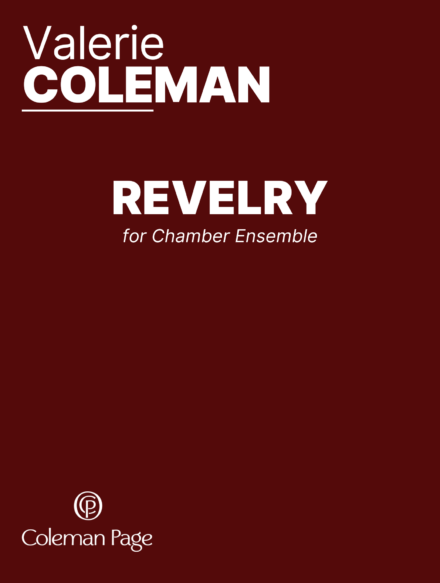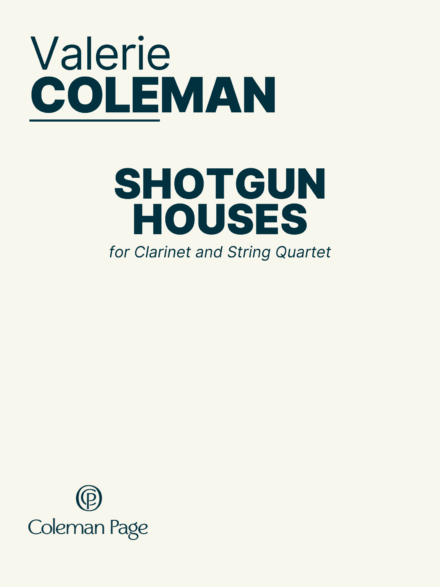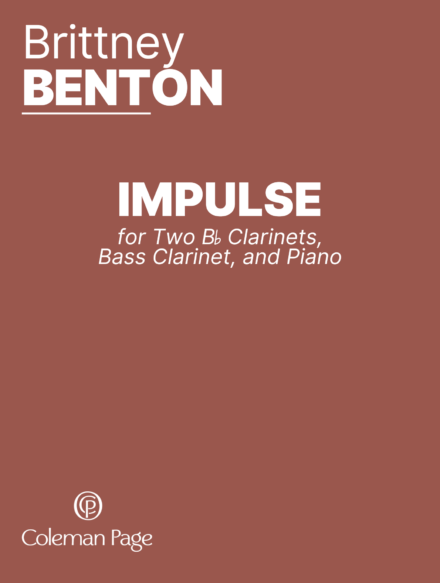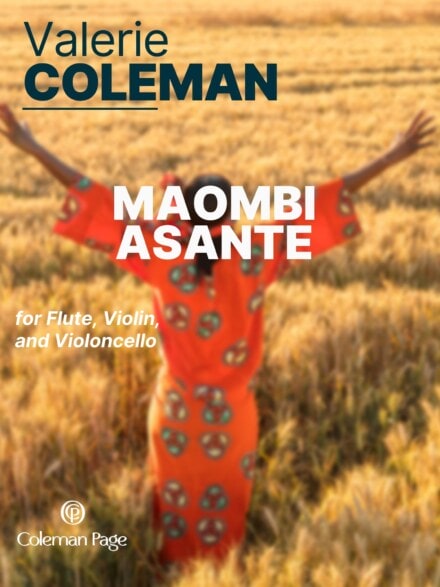
Shotgun Houses
for Clarinet and String Quartet
Commissioned by Chamber Music Northwest, with the generous support of the CMNW Commissioning Fund
Valerie Coleman
$64.99
SHOTGUN HOUSES is the first of three installments that celebrate the life of Muhammad Ali, a man who carried the pride of Louisville with him everywhere throughout his career. The title refers to the architectural landscape of his childhood community of West Louisville, which was once considered an indicator of poverty, but has since developed a historical nostalgia. Within the first installment, Coleman takes a personal look at the young man Cassius Clay and writes with the intention of introducing a West Louisville, a community in which both composer and athlete shared.
The first movement, ShotGun Houses, is a sketch of the neighborhoods of West Louisville, in the 1950’s period. Inspiration for the movement came from observing photos and tracing the path to get to Ali’s childhood home on Grand Ave. from my own childhood home just blocks away.
With a down-home wail, the beginning is a nod to Southern life and the view of shot gun houses, all lined up in a row. Soon after, the music shifts and the clarinetist’s upper register is prominently featured, symbolizing the bold personalities that all West Louisville children learn early on within their interactions: to orally boast and tease one another as a part of playing in the streets. This was a time when the area was a thriving suburb, filled with a generation of people who, in large, embraced a determined responsibility towards their community. The rhythmic groove is a determined stomp, played with momentum within the strings, while the clarinetist answers within a declarative ricochet. ShotGun Houses gently ends with a dark realization of blight that the neighborhood has become in present day.
Ali’s home on GRAND AVENUE titles the third movement, and the music is a simple ballad to his mother. In my research, every photo found of Ali with his mother shows a kiss or embrace, and it is clear to see the pure love from that innocent child that remained with the championing throughout his life. The clarinet is sweet in sound here, as Ali wanted to give his mother a better life than what Grand Avenue could provide.
ROME 1960 is the final movement of the first installment, and appropriately so, as the result of the 1960 Olympics was truly the launch into Ali’s professional career. It begins with a young Cassius Clay, Jr., training on a speed bag (the balloon-like bag that hangs upside down) as shown through the rapid repetitive rhythm between cello and viola. The music also reflects the imagery of a young Clay jogging through the West End of Louisville to start his daily training every morning before sunrise. The clarinet begins to season the rhythm with a bubbling of musical commentary to reflect Ali’s own prose during workout sessions when the news cameras came to visit. The first section ends with a short cadenza, depicting Ali’s first airplane flight overseas into Rome. With the ringing of the bell (as depicted by the clarinet), what follows is a mini-musical documentary of the gold medal match between Ali and the reigning European champion, complete with hits, blows (orchestrated through a combination of string pizzicati and clarinet shrieks) and finessed defensive movements. In the first round, Zbigniew Pietrzykowski takes the lead. In the second round, they are evenly matched; the clarinet and cello end the round in a sustained dissonance to depict two boxers in a clinching (embraced) position, before being broken up by the referee and the match bell. At this point, Ali quickly reflects on what needs to be done and within the Meno Mosso section of sobering and slow melody, he realizes that the very last round should leave no doubt that he is the Olympic champion. As the “bell” rings one final time, a rejuvenated and determined Ali dances in the ring with a recapitulation of the opening material, reminding the listener of humanity’s determination, manifested through Ali’s greatness.
This is a work that I dedicate this to my neighborhood, ALI’s neighborhood of West Louisville.
May his legacy remind us all of the greatness which we are all capable of achieving. VC



